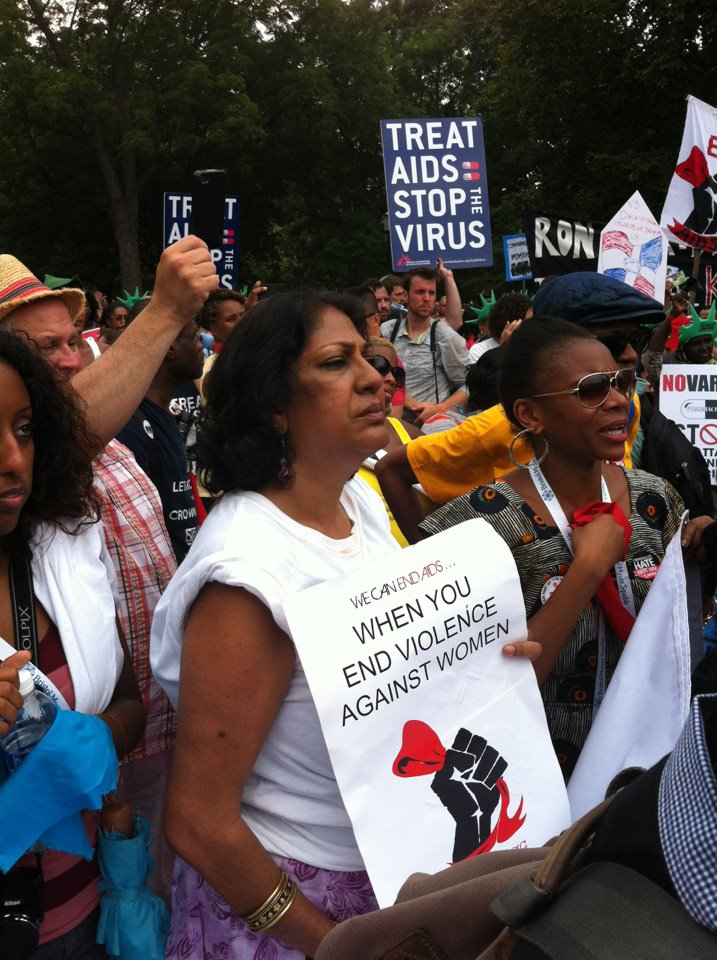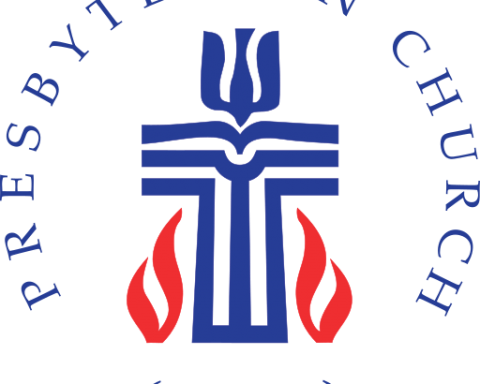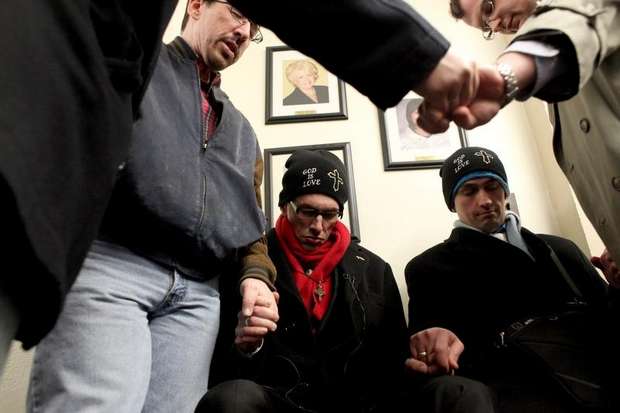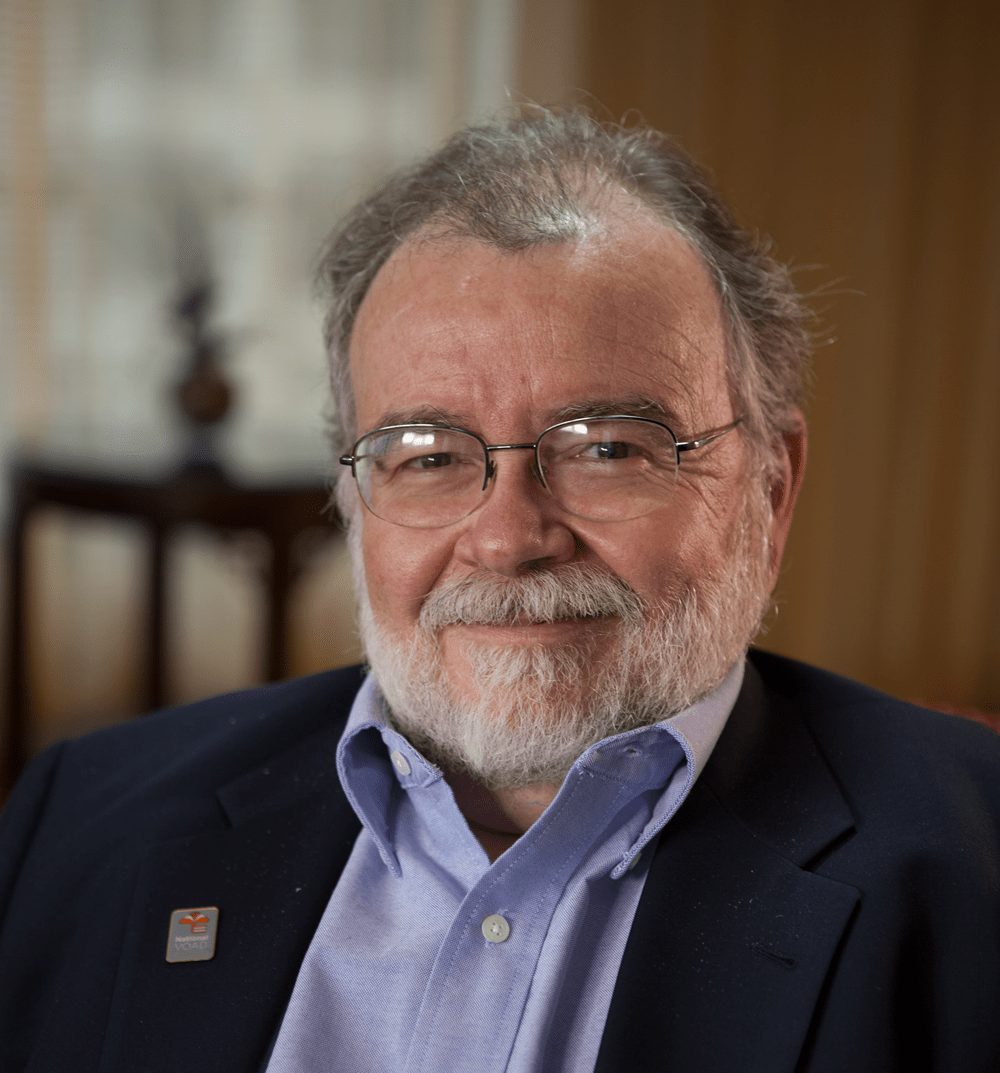Historic African American seminary, Johnson C. Smith, takes the lead in mobilizing new approaches to HIV/AIDS care and advocacy through its “AIDS Competent Churches and Church Leaders” certification program.
The following is the first article of a February 7–March 7, 2013, series of reflections from Johnson C. Smith’s first annual HIV competency training conference. Today, February 7, marks the National Black HIV/AIDS Awareness Day. By Ken Lazarus, Director of the Johnson C. Smith Theological Seminary AIDS Initiative
As we move toward the 32nd anniversary of the first official diagnosis of the Human Immunodeficiency Virus (HIV) in June of this year, we as citizens of the world, and more intimately as persons of faith, are still grappling with the overall and burdensome impact that the Acquired Immune Deficiency Syndrome (AIDS) has placed upon our society from our health care delivery system to the halls of our legislative bodies to the very pulpits and congregations through which many of us have been called to serve humanity. No one has been left untouched by the peril of this disease, whether as an infected person, an affected party, or an impacted citizen.
With monumental scientific advancements in the area of treatment, we find ourselves asking the question: “Why are people still contracting a virus that is 100% preventable?” There is no clear-cut or simple answer. HIV/AIDS is perpetuated in a complex web of poverty, gender inequality and violence, human rights violations, normalization of casual sexual activity, and the stigma and unjust discrimination meted out to those living with HIV and AIDS. A strategy no less complex, integrating education, prevention, advocacy, and root causes, will suffice.
It is with this in mind that the Presbyterian Church (U.S.A.) has begun ‘gathering, equipping, training and mobilizing’ church leaders to develop the skills and resources for creating AIDS competent congregations.
In June 2010, the 219th PC(USA) General Assembly adopted the report, Becoming an HIV and AIDS Competent Church: Prophetic Witness and Compassionate Action.[1] This Advisory Committee on Social Witness Policy report offers a comprehensive study that identifies issues impacting people living with HIV/AIDS, both nationally and globally, and calls upon churches within the denomination to become “AIDS competent.” Drawing from language of, and benchmarks for, competencies recommended by the World Council of Churches,[2] the report highlights specific areas needed for strengthening churches’ social witness and addressing HIV/AIDS within their congregations and communities.
___________________________________________
While the General Assembly approved the language of creating AIDS competent churches, no faith institution (from any denomination or ecumenical council) offered any training or
continuing education programs to foster such a vision.
___________________________________________
Shortly following the 219th General Assembly, the United States Offices of National AIDS Policy (ONAP), with vigorous support and leadership from President Barack Obama, released the National HIV/AIDS Strategy for the United States with three primary goals: (1) reducing the number of people who become infected with HIV; (2) increasing access to care and optimizing health outcomes for people living with HIV; and, (3) reducing HIV-related health disparities.[3] The National HIV/AIDS Strategy repeatedly states that the success of the strategy requires the commitment of all parts of society, including, and especially, faith communities, which are specifically named in the recommended actions of all three of these primary goals.
In viewing these two momentous documents, a group of concerned seminarians led by the students of Johnson C. Smith Theological Seminary (JCSTS), along with the seminary staff and key faculty members of the Interdenominational Theological Center (ITC), began to envision how JCSTS might respond at a local level to the AIDS pandemic. While this was a worthy cause that many have championed for over three decades, this issue was becoming increasingly relevant and personal for the seminary students for several key reasons: a) the section of Atlanta, Georgia in which the seminary is located (ZIP code 30314) has the fourth highest incidence of HIV infections in the state of Georgia;[4] b) the clarified recognition of the disproportionate rate at which African Americans are currently becoming infected with HIV—African Americans accounted for two-thirds (66.6%) of new HIV infections in the U.S. in 2009,[5] yet make up only 13.6% of the total U.S. population;[6] and c) the impact HIV/AIDS has made on the black church.
A further review of available resources and curricula revealed that, while the General Assembly approved the language of creating AIDS competent churches, no faith institution (from any denomination or ecumenical council) offered any training or continuing education programs to foster such a vision. Thus, the group began to envision what a certification program might entail.
 The student/staff/faculty collaboration concluded that the Johnson C. Smith Theological Seminary was uniquely positioned to create and administer this certification program for creating AIDS competent churches. First, JCSTS is the only African American Presbyterian seminary in the world and maintains a commitment to the social justice legacy of the Reformed tradition. It takes seriously not only the social determinants to health associated with race, class, sex, and other demographic distinctions but also the health disparities associated with HIV disease itself. Second, JCSTS is one of the six constituent seminaries of the Interdenominational Theological Center, the largest historically black theological educational institution in the U.S.; this ecumenical environment provides an opportunity to engage in dialogue, form partnerships, and provide HIV/AIDS training among a wide variety of denominational and ecclesial bodies.
The student/staff/faculty collaboration concluded that the Johnson C. Smith Theological Seminary was uniquely positioned to create and administer this certification program for creating AIDS competent churches. First, JCSTS is the only African American Presbyterian seminary in the world and maintains a commitment to the social justice legacy of the Reformed tradition. It takes seriously not only the social determinants to health associated with race, class, sex, and other demographic distinctions but also the health disparities associated with HIV disease itself. Second, JCSTS is one of the six constituent seminaries of the Interdenominational Theological Center, the largest historically black theological educational institution in the U.S.; this ecumenical environment provides an opportunity to engage in dialogue, form partnerships, and provide HIV/AIDS training among a wide variety of denominational and ecclesial bodies.
Third, as an accredited institution of higher education, JCSTS has the ability, through its partnership with the ITC, to provide both on-campus and distance learning courses for both degree seeking students and non-degree (continuing education) seeking professionals. The certification program, therefore, will be available to a wide variety of church leaders, including clergy, clergy candidates, and lay leaders within the church.
Given the diverse denominational backgrounds of the seminarians as well as those within the targeted communities of faith, the Certification of AIDS Competent Churches program does not advance one particular biblical or theological position on HIV/AIDS. Instead, the goal is to work with church leaders to formulate and articulate biblical, theological, pastoral, and moral/ethical foundations that are consistent with each church’s mission and/or vision statement. This approach upholds the World Council of Church’s definition of an HIV competent church as:
a church that has first developed an inner competence through internalization of the risks, impacts and consequences and has accepted the responsibility and imperative to respond appropriately and compassionately. In order to progress to outer competence, there is need for leadership, knowledge and resources. Outer competence involves building theological and institutional capacity in a socially relevant, inclusive, sustainable and collaborative way that reduces the spread of HIV, improves the lives of the infected and affected, mitigates the impact of HIV and ultimately restores hope and dignity.[7]
To achieve this “outer competence,” the program draws on the three competency benchmarks highlighted in the Becoming an HIV and AIDS Competent Church report: (1) pastoral care; (2) preaching; and (3) education. To this list, the program has added biblical and theological foundations—as well as advocacy and asset mapping. This five-part model serves as the basis for the certification program.[8]
___________________________________________
Why Johnson C. Smith Seminary? Its section of Atlanta has the fourth highest incidence of HIV infections in the state of Georgia. As a historic African American seminary rooted in justice, we are examining the disproportionate rate at which African Americans are currently becoming infected with HIV—and the impact HIV/AIDS has made on the black church.
___________________________________________
The first annual conference, “Creating AIDS Competent Churches and Church Leaders” welcomed the inaugural class of nearly one hundred participants to Atlanta, Georgia from November 28th through December 1, 2012, concluding with a town hall meeting that featured the screening of “ENDING SILENCE, SHAME & STIGMA: HIV/AIDS in the African American Family.” The second conference in 2013 will welcome a new class of participants and returning participants from the first class, who will receive further support and direction as they report on the progress of their respective congregations’ work to become AIDS competent congregations.
To further strengthen this overall process, participants will be eligible to enroll in a full certification program, which is in the final development phase and will be launched during the summer of 2013.
As Johnson C. Smith Theological Seminary continues this ground-breaking work at the pivotal intersection of HIV-AIDS service delivery and the faith community, we ask that you continue to support this effort through your prayers, your comments, your criticisms, your feedback, and most of all through the expression of your love for the persons living with HIV and AIDS whom we are committed to serving.
In the coming weeks, Unbound will feature a series of reflections from participants of the inaugural conference, preparing for the hard task of application of lessons learned within their respective communities.
Contact Ken if you are interested in participating in or promoting the certification program
Notes
[1] Advisory Committee on Social Witness Policy, Becoming an HIV and AIDS Competent Church: Prophetic Witness and Compassionate Action (Office of the General Assembly, Presbyterian Church (USA), 2011). Available at: http://www.pcusa.org/resource/becoming-an-hiv-and-aids-competent-church/
[2] World Council of Churches, Beacons of Hope: HIV Competent Churches – A Framework for Action (Geneva: WCC Publications, 2008). Available at: http://www.oikoumene.org/fileadmin/files/wcc-main/documents/p4/ehaia/Beacons_of_Hope.pdf
[3] The White House Office of National AIDS Policy, National HIV/AIDS Strategy for the United States, July 2010. Available at: http://www.whitehouse.gov/sites/default/files/uploads/NHAS.pdf
[4] Unpublished data from the Georgia HIV/AIDS Surveillance Summary (2009) provided by request from the Georgia Department of Public Health. The most recently published Georgia HIV/AIDS Surveillance Summary is available at: http://health.state.ga.us/epi/hivaids/
[5] Centers for Disease Control and Prevention (CDC), HIV/AIDS Surveillance Report 2009; 21: Table 1a. Available at: http://www.cdc.gov/hiv/surveillance/resources/reports/2009report/#1
[6] US Census Bureau, The Black Population: 2010. 2010 US Census Briefs, accessible at: http://www.census.gov/prod/cen2010/briefs/c2010br-06.pdf
[7] World Council of Churches, Beacons of Hope: HIV Competent Churches – A Framework for Action (Geneva: WCC Publications, 2008), 20.
[8] HIV-AIDS Initiative Program Description extracted from the JCSTS Prospectus: “Certification of AIDS Competent Churches and Church Leaders: A Mission Program of the Johnson C. Smith Theological Seminary.”
Ken Lazarus serves as Director of Development for the Johnson C. Smith Theological Seminary (JCSTS) as well as the director for the seminary’s HIV-AIDS initiative. Prior to joining the staff of JCSTS, Mr. Lazarus most recently served as the Chief Ministry Officer of Lazarus Lives, Inc., which focuses on development of service and support oriented ministry programs to CONNECT and in many instances “Re-Connect” brothers “First to Christ, then to Self, and finally to Community.” Mr. Lazarus has amassed over twenty-five years of management consulting experience in the areas of Healthcare, Education, the Arts, and Philanthropy. Lazarus is a native of Philadelphia, Pennsylvania, having relocated to the Atlanta region just seven years ago from the state of New York.






Unbound Social